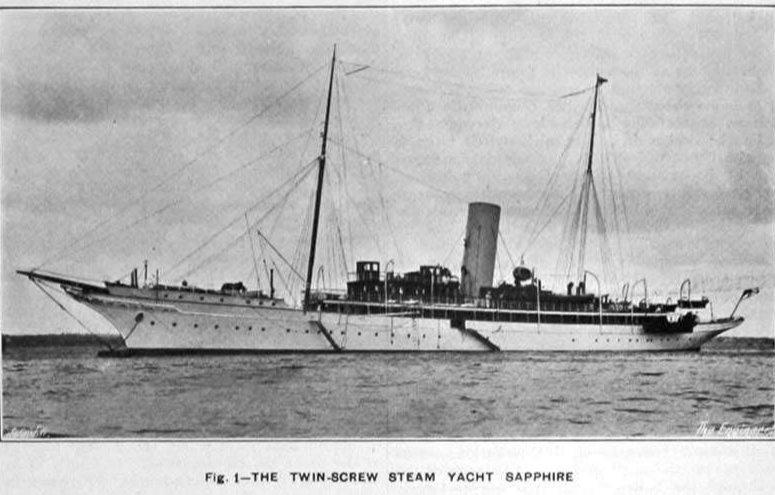As we wrote in our article on legal subtleties in assessing the technical condition of a yacht, the choice of English law for the settlement of contractual relations related to the purchase of a yacht allows us to take into account the experience and lessons of a number of precedents. In this article we will look at several cases that relate to the narrow issue of agency fees, including brokerage fees, arising from the sale and purchase of yachts subject to English law.
Yacht sales transactions often involve an agent (a yacht broker) who not only introduces the seller and the buyer, but also partly acts as a party to the sales contract itself with a range of rights and obligations.
In disputes, the subject of which is the payment of commission, one of the primary factors of verification is the presence of an effective cause. Thus, the agent's actions should be an effective reason for the completed purchase, i.e. it is required to have a clear connection or a sequence of events that led to it.
The broker must prove that it was his actions that led to the transaction.
In a case far removed from the yachting industry, Nahum v Royal Holloway and Bedford New College [1999], the so-called effective cause test between the actions of the agent and the sale itself was considered in detail.
In order to pass the effective cause test, the agent must show that it was his actions that led to the relationship between buyer and seller.
Establishing the effective cause goes through a red line through all cases related to the agents' actions.
The Pratt broker versus Lord Furness
The first yacht precedent we will consider is PRATT v. [1925].

The yacht broker went to court to obtain a commission from the seller for the sale of the Sapphire yacht. The stated commission was 5% of the value of the yacht at £100,000. The plaintiff insisted that he had been involved in getting to know the seller and the buyer, which subsequently led to the sale of the yacht. The defendant, in turn, claimed that the plaintiff had not been hired to find a buyer and participate in the transaction.
At the end of the case, the court accepted the defendant's side, finding that the plaintiff had failed to prove two facts:
1) that the seller has given him instructions to find a buyer for the yacht, and
2) that he was an effective reason for the sale.
Broker Moran v. Kirill Pisarev.
Next case is MORAN YACHT & SHIP INC v. PISAREV AND ANOTHER [2014]. The plaintiff in the case was a brokerage company that applied to the court for a brokerage fee of 4% of the sale of the 4YOU worth €19.8 million.

The brokers insisted that they were entitled to a commission, as they arranged for a person to visit the yacht, who after a while became its buyer. Because of this, brokers claimed that they were the reason for the transaction.
The defendant (the seller of the yacht), in turn, insisted that during the visit of the future buyer on board he did not give any instructions to the brokers to sell the yacht.
After an extensive trial, in which the plaintiffs and defendants personally participated, as well as a number of witnesses, the court concluded that at the time of the buyer's first visit aboard the yacht, the brokers had not been directly instructed to sell the yacht. The court also stressed that the brokers were not an effective reason for the sale, and therefore their demands were not met.
If the broker has not received direct instructions from the seller for the sale of the yacht, or if these instructions have not been documented in any way, this may be grounds for refusing to pay brokerage fees.
The peculiarity of the case was the fact that the broker claimed the personal responsibility of the beneficiary of the buyer's company. To which the court noted that finding the beneficial owner guilty in such circumstances could give rise to a rather large gap in the principle of limited liability of legal persons.
The appeal also upheld the first instance position.
Boris Berezovskiy v. Edminston broker
Another known case for payment of the fee relates to the case of Berezovsky v Edmiston [2010].

The circumstances of the case are as follows. The claimant (the seller of the yacht) Russian oligarch Boris Berezovsky has addressed to the defendant who acted the broker company, with the instruction to sell the yacht Radiant. The brokerage agreement was concluded verbally. As part of the work, the defendant hired a sub-broker who found a buyer. The buyer of the yacht entered into direct negotiations with the plaintiff and bought the yacht.
As soon as the defendant learned of the sale of the yacht for €240,000,000, he approached the plaintiff for a brokerage fee and the sub-broker for 70% of the defendant's fee.
However, the plaintiff denied the defendant's contribution to the transaction, and he assured the broker must not simply present the buyer to the seller, but must complete the transaction by its actions. Since the buyer communicated directly with the seller, the defendant, in the plaintiff's opinion, did not make much effort and could not be an effective reason for the transaction.
After reviewing all the case files, the court took the defendant's side and pointed out that the fact that it was the broker who introduced the seller to the buyer and presented the yacht to the buyer as such was undoubtedly an effective reason for the transaction. The buyer's choice of how to negotiate further with the seller would be irrelevant in this case.
However, the court ruled that the sub-broker was not entitled to claim a commission directly from the plaintiff, since the defendant had not approached them.
Moreover, there was also no corresponding agreement between the sub-broker and the plaintiff in some form.
Broker Marcan Shipping v. Polish Steamship
The latter precedent is generally applicable to the shipping industry, but also in yachting. This is the case of MARCAN SHIPPING (LONDON) LTD. v. POLISH STEAMSHIP CO. [1988].
Background: the buyer hired a brokerage company to search for the boat and negotiate with the seller. In favour of the buyer, a contract for the sale of the vessel was concluded between the broker and the seller.
The contract established the period during which the seller was to deliver the vessel to the buyer. The seller did not deliver the vessel within the period set out in the contract, which gave the buyer the right to withdraw from the contract, which the buyer exercised, including by claiming the refund of the deposit. The buyer was unable to settle the dispute between the parties regarding the return of the deposit itself and the case was referred to the court, which decided to return the deposit.
Subsequently, and despite the fact that the transaction was terminated, the broker applied to the court for commission. The broker insisted that the contract of sale of the vessel, which had been terminated by the parties, contained the following «implied terms»: regardless of whether the contract of sale itself had been properly executed or not, the broker was entitled to payment of the broker's commission.
In the course of the case the court acknowledged that according to the established market practice the payment of brokerage commission is directly dependent on the successful completion of the transaction - delivery of the vessel and payment of its value.
As a result, the claimant's claim was rejected because of the absence of stated implied conditions in the contract for the sale of the vessel.
Having considered a number of cases, it may be noted that if an agent/broker is involved in the transaction, the arrangements for his involvement should be clearly recorded by a written contract. In this case, the clearer the agreements of the parties before entering into the transaction, the less opportunities for free interpretation, and in case of a controversial situation, the decision will be easier to take.
You should also always consider the effective reason between the agent/broker's actions and the sale, as well as the fact that the sale itself was successful - i.e. the actual settlement between the parties and delivery of the yacht.











